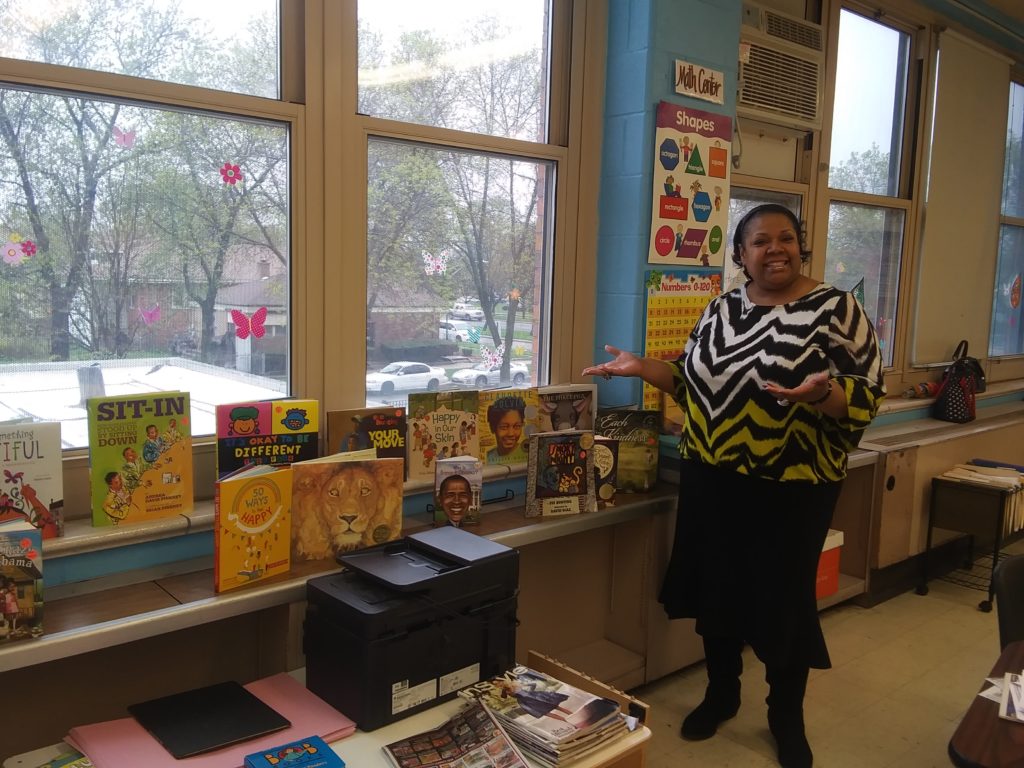This year, Teacher Appreciation Week has taken on a whole new dimension. With many states, including Illinois, now shuttered for the remainder of the school year, countless parents nationwide are looking ahead to months more of educating their own children at home. As families continue to struggle through this new reality, it’s clear teachers’ work is being appreciated now more than ever.
There are memes asserting a newfound and steadfast belief that teachers should be paid more. Digital resources galore are being shared about how to schedule, educate, and yes, even “classroom manage” your children. And there are heartwarming stories about how educators are showing up both digitally and literally to support students and families.
As a former educator and a new parent, I’m uplifted to see widespread teacher appreciation during this incredibly challenging time. At the same time, as the Executive Director of Educators for Excellence-Chicago (E4E), a nonprofit that works to ensure educator perspectives are reflected in our education policy decisions, I believe we can and must do more.
The truth is that our nation and city are grappling with very serious immediate and long-term implications of extended school closures. So severe, in fact, that Chicago’s Board of Education approved $75 million to address the fallout of Covid-19, while the federal government’s stimulus is sending another approximately $205 million to the city for the same purpose. More money will almost certainly be needed, as the pandemic’s economic downturn impacts state and city budgets, but $280 million is nonetheless a significant contribution toward meeting the growing needs of students and families.
Teachers Know What Our Young People Need
If we want to respond effectively to this crisis and spend this valuable money wisely, we must consult our educators. Truly appreciating teachers means bringing their experiences and perspectives into critical conversations. No one knows better the very real challenges being created and exacerbated by school closures and remote learning.
When asked to identify the most urgent priorities schools should address in the wake of COVID19, over 400 Chicago teachers surveyed came to a clear consensus. They called for access to technology, support for diverse learners, parent engagement, distance learning training and support, and reentry planning.
Whether it is access to a tangible device or to the resources and services needed to support every kind of learner – from diverse learners to English language learners to students from low-income homes – it is clear we are not yet providing all students with what they need to learn and grow during this tumultuous time.
The same can be said of teachers, who are craving additional professional development, guidance and coaching around remote learning. In fact, 60% of surveyed educators said they felt “not at all prepared” or “slightly prepared” to support their students with remote learning. With schools now shuttered for the remainder of the year, this reality needs to change and it needs to change quickly. We must rapidly ramp up the kinds of development, guidance and support we are providing our educators.
To Address Inequity, Listen to Teachers
And beyond all of that, teachers have already begun to consider what returning to school might look like and how they can support their students through learning loss, as well as additional trauma and poverty created by the pandemic. Inequities that already existed are worsening and teachers who were already scrambling to provide their students with every opportunity for an excellent education find themselves working even harder.
These are extraordinary challenges. Finding the right solutions will require innovative, out-of-the-box thinking and collaboration with the people doing this work day in and day out. We must entertain options that we may have never considered before, and engage in the hard conversations now to ensure our education system evolves to meet today’s and tomorrow’s challenges.
Lately, we all say we appreciate teachers. But if we want to put our money where our mouth is, then we also need to respect their insight and expertise. Let’s start by directing dollars where teachers tell us they are most needed and working with them on how to spend them. Let’s show educators we value them by elevating their experiences and leveraging them to solve our greatest challenges. I can think of no better way to celebrate Teacher Appreciation Week.
